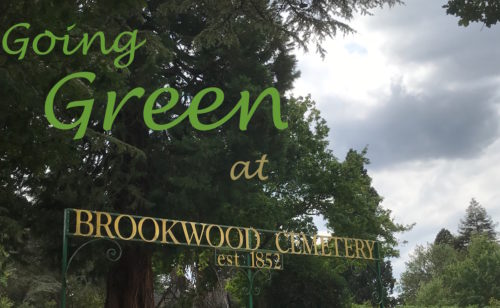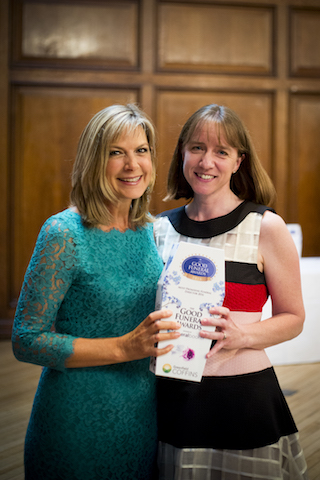
It’s been twenty five years since the inspirational Ken West MBE opened the very first natural burial ground at Carlisle cemetery, and here at GFG Towers we felt that this landmark anniversary needed to be acknowledged. Members of the Good Funeral Guild felt so too, and, under gentle pressure from Stephen Laing we have co-opted fellow Guild members Emma Curtis and Sarah Weller to help us organise a celebratory day to commemorate Ken’s achievement at the beautiful, iconic Brookwood Cemetery in Surrey on Sunday September 9th, between 10.00 and 17.00.
Since 1993 when the very first natural burial took place, over 300 sites around the UK have been opened, and countless thousands of people have chosen this gently, environmentally responsible alternative to cremation or traditional burial. Despite this, natural burial lags behind in the statistics, being the choice of only around 1% of the population, which we think is a real shame. We’d love to help raise awareness of natural burial generally, so this celebratory day is a starting point for us. Watch this space for further developments.
In the meantime, the event on Sunday 9th September will be open to everyone to attend, with an opportunity to explore the fabulous historic Brookwood Cemetery as a bonus. The London Necropolis and National Mausoleum Company was established in 1852 to provide ‘a great metropolitan cemetery situated in the suburbs, large enough to contain all of London’s dead for ever’, in response to great public concern about the state of London’s cemeteries. Two years later, Brookwood Cemetery was opened and the London Necropolis Railway ran between Waterloo station and two private stations in the cemetery, carrying coffins and mourners directly into the cemetery grounds. Since then, over 240,000 people have been buried here, and the cemetery is a hidden wonder of beautiful landscaping, quietly fading memorials and mausolea, immaculate military cemeteries and gems such as the only Zoroastrian cemetery in Europe and the St. Edward Brotherhood, a small Orthodox Christian monastery.
Set in the heart of Brookwood Cemetery is the natural burial area, Gillian’s Meadow, and it is here that we will be gathering to commemorate the establishment of natural burial as a viable alternative to the existing funeral choices. The Open Day will run from 10.00 until 17.00, and along with the ceremonial tree planting, there will be activities throughout the day to encourage guests to explore incorporating nature and ritual in their end of life decisions.
Death cafe picnics will run alongside rustic crafts, mandala and garland making, story telling,message writing and a ‘Time to Altar Grief’ installation, there will be a book tent where you can browse through all kinds of books on death and funerals, a chance to meet and chat with people working in the funeral industry who can answer any questions you might have, an opportunity to see a grave prepared for a natural burial, and Sound in the Woodland. We will also be offering Forest Bathing walks, allowing the opportunity to learn about the healing benefits of being among trees and nature, in the perfect setting. Bring a picnic and a rug and come and spend the day immersed in the beauty of Brookwood.
It will be a wonderful day, commemorating a hugely important movement inspired a quarter of a century ago by the brave innovation of Ken West and Carlisle City Council. We’ll be inviting all of the UK natural burial site owners and operators to come along and join us in acknowledgement of Ken’s influence, as well as local dignitaries and friends of Brookwood Cemetery. Members of the Good Funeral Guild will be coming along too, and the day will be open to the public to come and be part of.
Oh, and there will be cake. Lots of cake. With a very special centrepiece cake created by Conjurer’s Kitchen.
Details about Going Green at Brookwood can be found on Facebook here.

